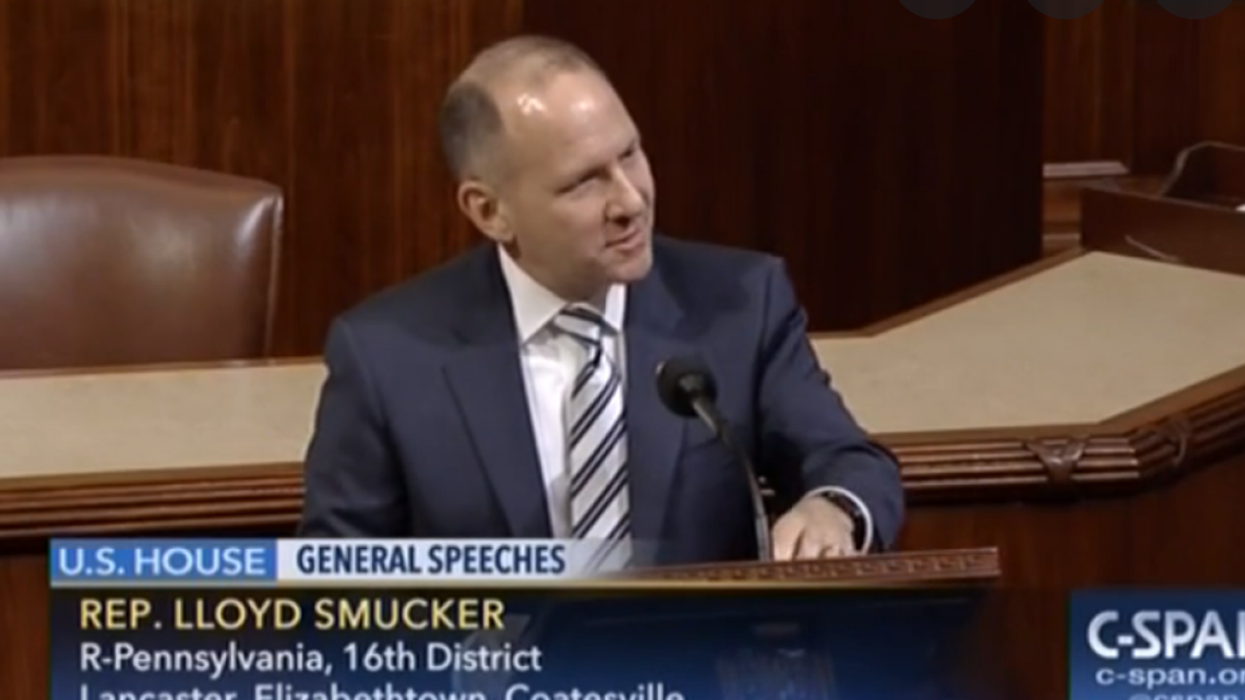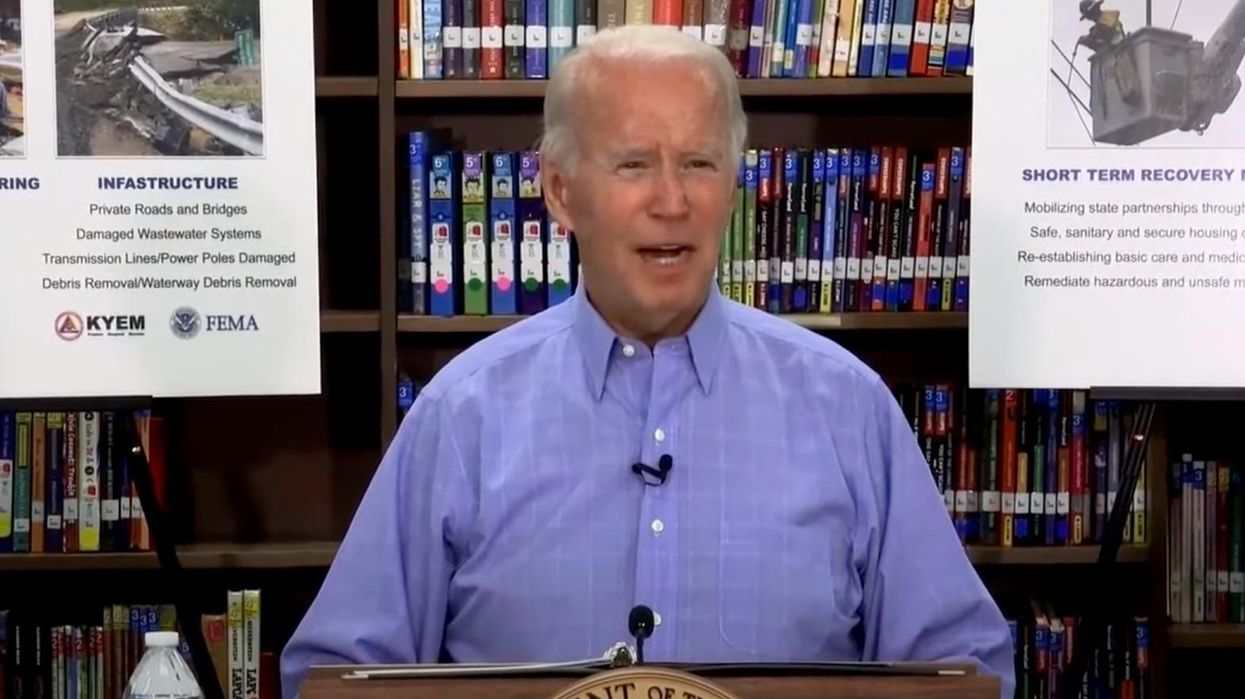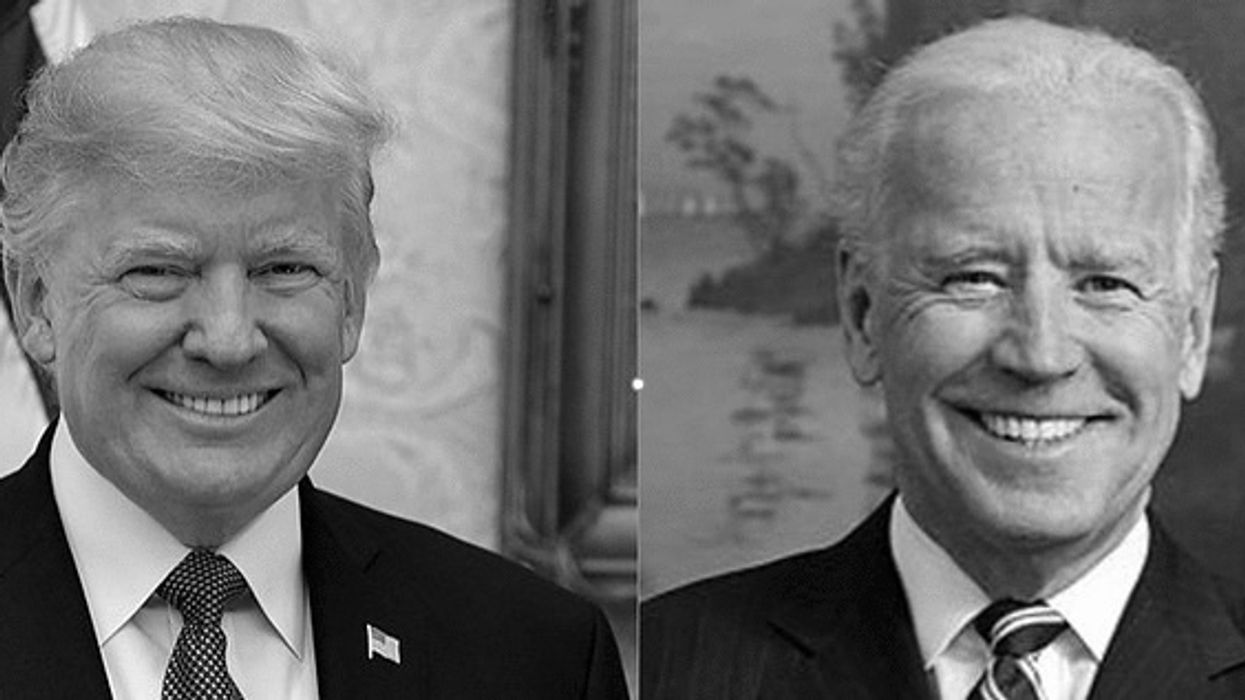America Is Still Great -- But Trump Threatens Our Prosperity And Freedom
After I voted yesterday, I made it a point to thank every poll worker and citizen volunteering at our polling place. In Maricopa County, Arizona, the tabulation center will have snipers on the roof, metal detectors and security at every entrance.
In Colorado, some polling places have installed bulletproof glass and purchased bulletproof vests for election workers. In Gwinnett County, Georgia, public schools will be closed so that resource officers can be redeployed to cover voting. Those are just a sample of the measures being taken nationwide.
The GOP wailed about immigrants supposedly turning America into a Third World nation, but its deliberate, unrelenting lies and threats of violence actually pushed us in that direction.Still, at my polling place and across the nation, the poll workers show up. God bless them all.
The neo-fascist Trump/Vance ticket relies on a doom message. I suppose they have to. In order to convince non-MAGA voters to put aside their dislike of Trump's coup attempt, authoritarian intentions, alarming ignorance and insane hangers on, to say nothing of Trump's clear mental decline, they have to portray Biden's (or now) Harris's America as a hellscape. "They've destroyed the economy," Trump claims. "I've never seen a worse period of time."
Look around you, my friends. We live in the wealthiest country in the world — in the history of the world, for that matter. The reason so many people from supposedly thriving places like China are making the trek across the globe to attempt to cross our southern border and request asylum is because, for all our faults, this country remains a beacon of freedom and a remarkable engine of prosperity.
The Economist lays out some of the details. "America has grown faster than other big rich countries, and it has rebounded more strongly from bumps along the way." In 1990, the United States accounted for two-fifths of the overall GDP of the G7 nations. Today, it's about half.
American productivity leaves others in the dust. "On a per person basis, American economic output is now about 40 percent higher than in western Europe and Canada, and 60 percent higher than in Japan — roughly twice as large as the gaps between them in 1990." And here's a statistic that may make you rub your eyes: "Average wages in America's poorest state, Mississippi, are higher than the averages in Britain, Canada, and Germany." In the past three years, China's GDP has slipped from about three-quarters of America's to two-thirds today.
Nor is it the case — sorry, Bernie Sanders — that all gains have gone to the top one percent. Earners in the bottom quintile of households saw their after-tax and after-transfer income rise by 25% between 2007 and 2019 (some of that attributable to the Affordable Care Act). Sure, the super rich are super rich (and some are dangerous) but if you exclude the top one percent from the calculations, the Economist reckons that the bottom 20 percent of earners made faster gains in the past couple of decades than the top 20 percent.
The middle class saw median real income increase by 57 percent between 1990 and 2019.Inflation (caused by COVID, COVID relief and Russia's invasion of Ukraine) hurt U.S. consumers, and voters may yet punish Kamala Harris for it. There's some irony here because Trump's proposed tariffs would boost inflation right back up. Sadly, or perhaps tragically, many voters don't understand that tariffs are taxes.
Aside from inflation (which has come way down), the U.S. economy is doing remarkably well. Unemployment fell to its lowest rate in 55 years. Growth is strong. Our universities remain magnets for worldwide talent. The United States leads the world in research and development, and thanks to fracking (an American innovation) is the largest producer of oil and gas on the globe. (Fracking has also been a net gain on fighting climate change since the gas it produces is less polluting than the coal it replaces.) Again, inflation has been effectively defeated by the Federal Reserve's interest rate hikes and is now sufficiently tamed to permit rates to decline.
This is no hellscape. Crime rates are declining. Our air and water are clean. Our supermarket shelves are groaning with foods I had never even heard of when I was a child.Politicians are keen not to be seen as representatives of the status quo. The conventional wisdom is that it's poison and that's probably right. But what if the status quo is actually something for which we should say a daily prayer of gratitude and the real danger is that we'll screw it up because we've been misled into thinking things are terrible?
The country has its share of troubles — unsustainable national debt, excessive gun violence, schools that fail to teach civics, fracturing families, and corruption of our information media — but none of those true problems is being addressed by Trump. Instead, he and his minions fill people's heads with fantasies about rampaging criminal immigrants, a failing economy, spiking crime, and some amalgam of "communism" and "fascism."
The truth is that America is already great and the most pernicious threat to that greatness is Trump himself.
Mona Charen is policy editor of The Bulwark and host of the "Beg to Differ" podcast. Her new book, Hard Right: The GOP's Drift Toward Extremism, is available now.
Reprinted with permission from Creators.












